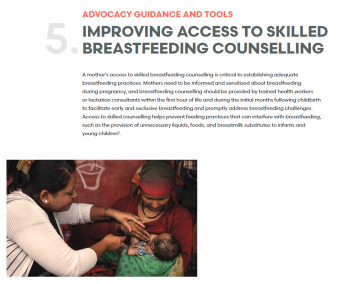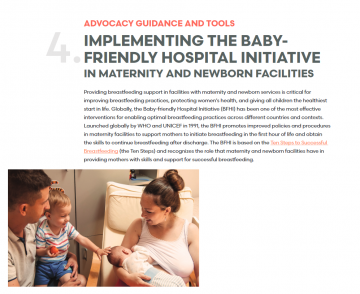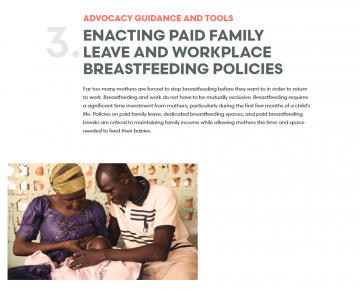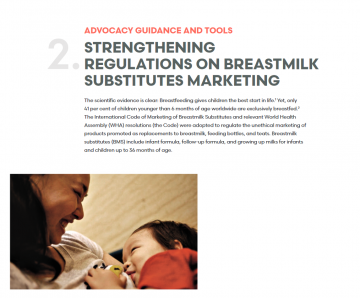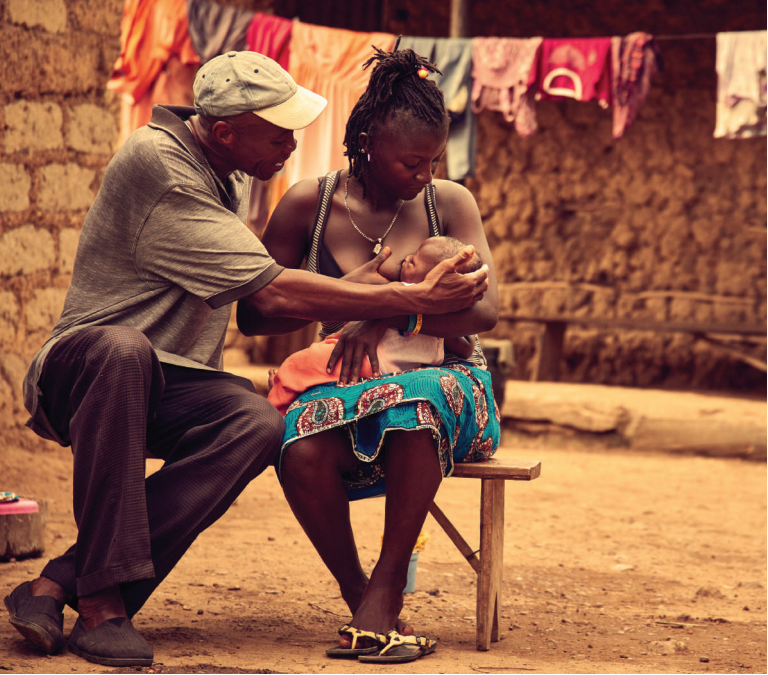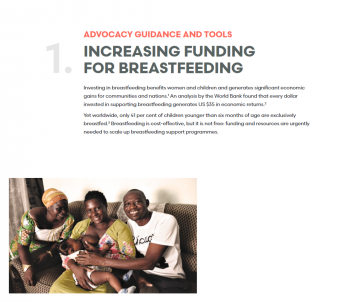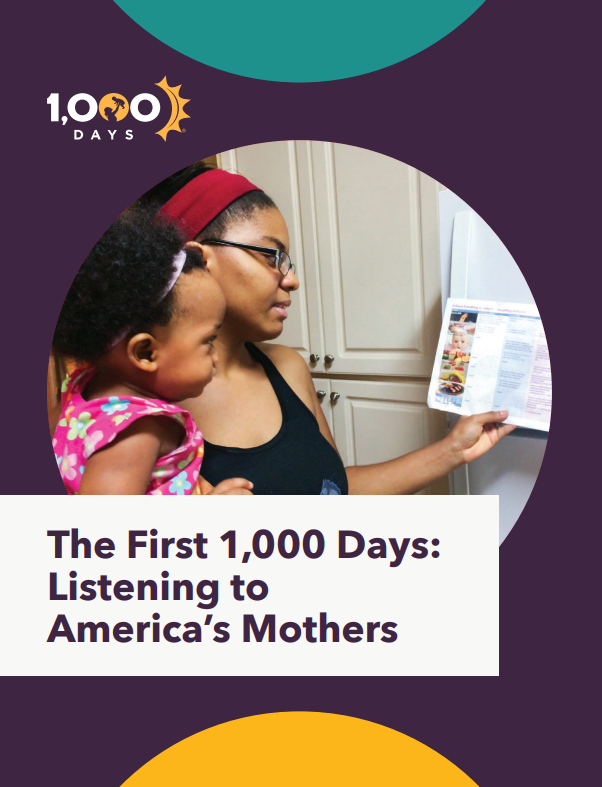Global Breastfeeding Collective: Breastfeeding Advocacy Toolkit – Improving Access to Skilled Breastfeeding Counselling
Led by UNICEF and WHO, the Global Breastfeeding Collective (the Collective) is a partnership of more than 20 international organizations with the goal of increasing investment and policy change to support breastfeeding worldwide, which requires advocacy at the global, national, and sub-national levels. Developed by the Collective, this document is one of seven briefs that provide guidance and resources to stakeholders on how to advocate for adoption of these policy actions with government ministries, health care workers and managers, employers, donors, and other key decision-makers.

